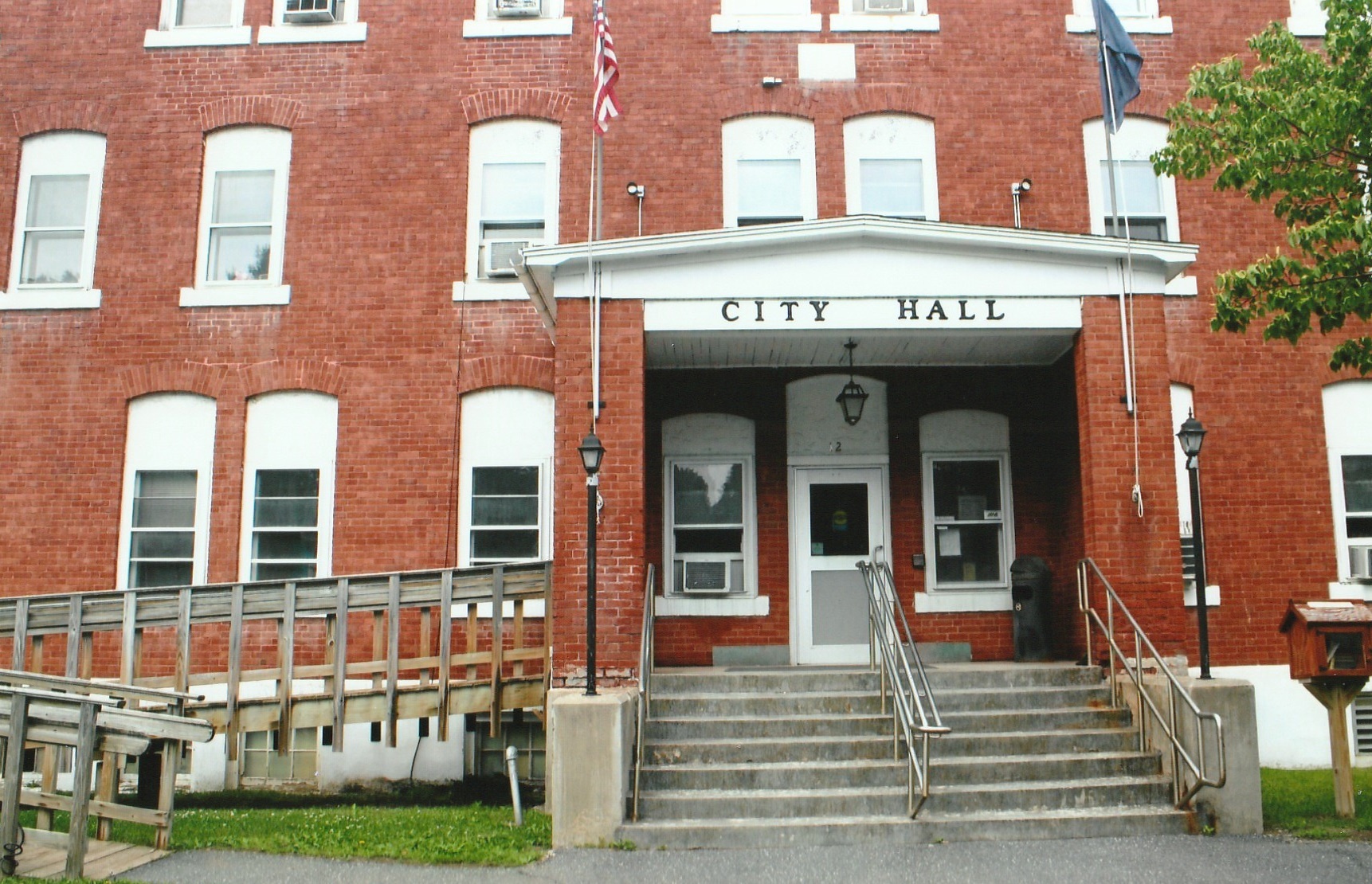PRESQUE ISLE, Maine — On Wednesday, Aug. 1, the Presque Isle City Council began discussing the city’s five-year capital improvement plan, which could lead to the councilors deciding soon whether to vacate the current City Hall or to make costly investments toward interior and exterior building renovations.
The 50-plus page capital improvement plan details anticipated expenses related to the city’s departments, including individual project costs that would come from necessary renovations to City Hall if the councilors decide to continue using the building.
City Manager Martin Puckett told councilors that within the past decade renovations to the 98-year-old building have cost the city a little over $120,000. Some of the major upgrades included the installation of metal roofing, which cost $33,981, in 2008 and rubber tile in the front lobby and upstairs code enforcement offices that cost $43,943.
Other past projects have included upgrades to light fixtures in 2013, replacement of the building’s front steps in 2014 and installing automatic doors and new fire alarms in 2016, which cost $4,102, $13,246 and $24,778, respectively.
Puckett stated that if the city were to pursue future renovation projects, such as window replacement, heating system improvements, bathroom upgrades, electrical improvements and refurbishment of fire escapes, the Council likely would have to approve an additional $50,000 in the budget annually.
Though the city could potentially search for grants and other funding options, at this time there is no such funding that he is aware of that would cover all necessary expenses while reducing the capital investment plan’s impact on city taxpayers.
“We would need to replace three fire escapes and that project alone would take a good portion of our budget,” Puckett said. “There’s also the need to make the bathrooms compliant with the American Disabilities Act and install a bathroom on the first floor.”
Councilors first voted to search for a new location for City Hall in 2014 and since then have been discussing potential pros and cons of selling the current building and moving to another part of the city or investing in more renovations.
In 2015, local developers Amy Collins and Gary Nelson, of C & N Rentals, offered $150,000 to buy the 3,000-square-foot building, intending to turn the building into an apartment complex. The duo backed out of the deal before contracts were finalized, however, because they believed that the costs of renovations, estimated at $400,000 at the time, did not make their project feasible enough to move forward.
Council Chair Emily Smith expressed frustration Wednesday over the Council’s inability to make a decision regarding City Hall and suggested that the members have further discussions about the building’s fate sooner rather than later.
“We keep pushing this issue off to the side, but that’s not fair to our employees,” Smith said. “This building is unsafe, it’s embarrassing, and the employees deserve to have a workplace that they can be proud of.”
Councilor Doug Cyr suggested that the Council look into possibly renting another location to operate as City Hall for at least five years while the councilors consider more permanent options.
“It wouldn’t be right to invest this type of money into a building that’s going to continue needing renovations,” Cyr said. “Renting for five years might allow us to see what our other options are.”
Councilor Craig Green noted that even if the right rental property and price were located, the Council would still have to consider the costs of moving employees and equipment into another location and then repeating the process once a permanent building was found.
“We would want to make sure that whatever move we decide on is one that could benefit us in the long run,” Green said.
Although councilors did not make a formal decision regarding the fate of City Hall, they agreed that further discussions are needed in the near future. If approved, the $250,000 in proposed renovations would take up a major portion of the city’s $8.4 million capital improvement plan, which details potential department projects and funding sources for the next five years.
In other business, councilors spoke with Fire Chief Darrell White about the ongoing need to replace the fire department’s 34-year-old engine truck, which doubles as a tanker truck. Earlier this year, the department applied but was rejected for a $300,000 Assistance to Firefighters grant from the Federal Emergency Management Agency. That grant would have covered much of the $600,000 price tag for a new engine/tanker.
Other five-year department expenses that White has proposed include $36,000 for a four-door SUV for command staff and emergency medical technicians to respond during emergencies, $36,000 for a four-door pickup to transport crews and equipment to and from fire scenes, $200,000 to replace three ambulances — all of which would be leased — $14,500 to purchase a second thermal imaging camera, and $7,000 to replace air bottles for firefighters’ air tanks.
White recently applied for a similar Assistance to Firefighters grant that would cover 95 percent of the total $165,000 cost to purchase new air packs for firefighters, which he said are aging and no longer in compliance with National Fire Protection Association standards.
“We have not yet received notification about the grant, which is a good sign because this is around the time that we might normally get a rejection letter,” White said. “We’re more confident that this particular grant might come through.”
Councilor Mike Chasse asked what the difference is between the 1984 engine/tanker, also called an apparatus, and the other tanker truck that the fire department operates.
“Tanker Two is one that we mainly use to transport water to fire scenes. It has hoses but no air packs whereas we could use the apparatus for various needs,” White explained. “Right now we’re very selective on when we take the apparatus out on calls. We’ve dealt with rusted pipes and water leaks and we even lost the engine at one point.”
“That truck has served the community well over the past 34 years, so I say we should let it die in peace,” he said.
White’s presentation was one of many that councilors heard from the various city department leaders, including those from the library, industrial council and planning and development. Councilors did not take any action on White’s recommendations or those from other departments but plan to take their comments into consideration when discussing the capital improvement plan and next year’s municipal budget.
The next regularly scheduled Council meeting is scheduled for 6 p.m. Wednesday, Sept. 5, at City Hall.





